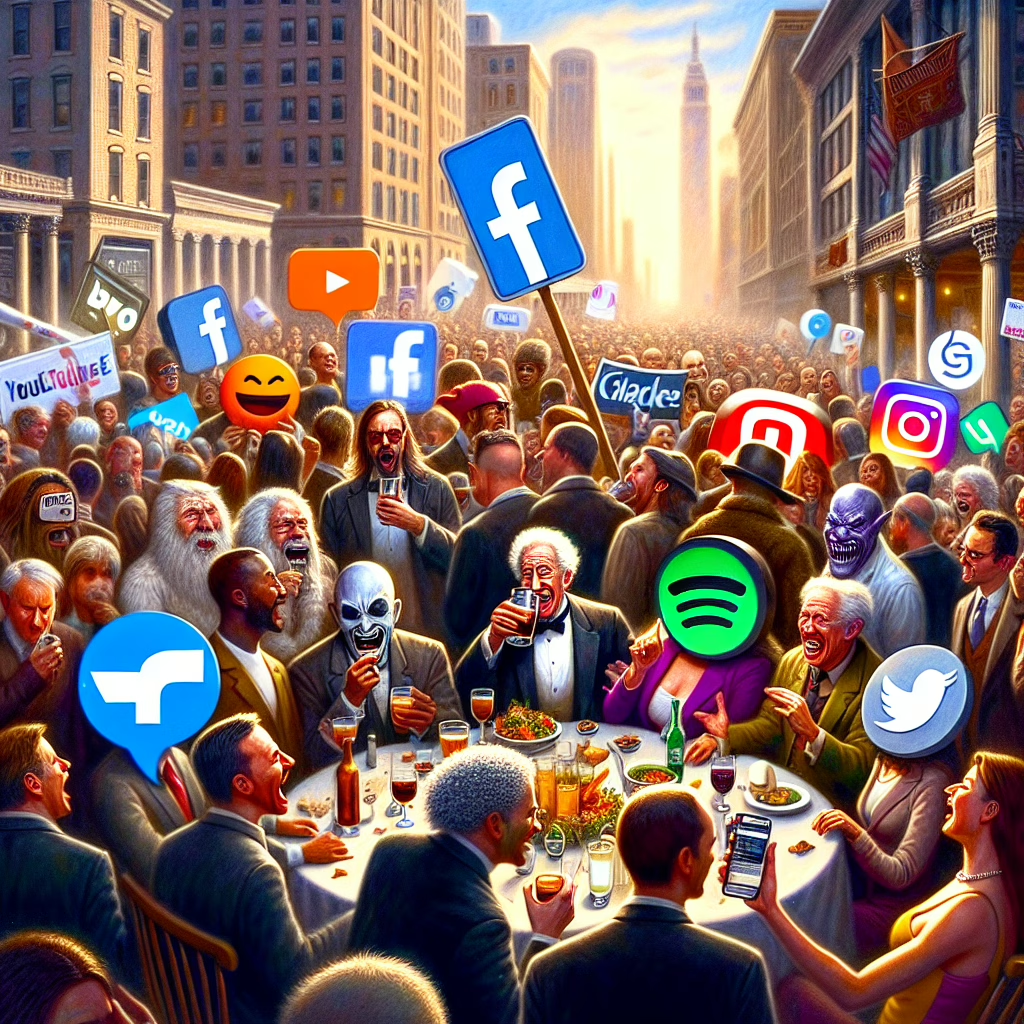In a world where online platforms like Meta, Reddit, and Google play a significant role in shaping conversations (and sometimes controversies), the recent Buffalo shooting lawsuit has thrown Section 230 into the spotlight. This legal provision, which protects platforms from liability for user-generated content, has been both celebrated and vilified. But what does it all mean for our digital lives? Let’s dive into this complex and slightly absurd legal quagmire with a splash of humor!
Understanding Section 230: The Internet’s Safety Net
First, let’s break down Section 230 in a way that even your pet goldfish could understand. Imagine if every time your friend made a questionable comment at a party, you were held accountable. Awkward, right? Well, Section 230 is like that friend who says, “Don’t worry; I got you covered!” It allows platforms to host user content without being responsible for what users post.
This law was enacted back in 1996 (yes, back when flip phones were all the rage) to encourage free speech online and allow platforms to moderate content without fear of lawsuits. So if someone posts something outrageous on Reddit or shares a meme on Meta that’s too spicy for the internet, these companies aren’t legally responsible—thanks to our buddy Section 230!
The Buffalo Shooting Lawsuit: A Case Study
The Buffalo shooting incident brought this legal shield under scrutiny as the families of victims filed a lawsuit against various online platforms. They argue that sites like Meta and Reddit failed to adequately monitor and manage harmful content that contributed to the tragedy. It’s like blaming the host of a party for not controlling the wild dance moves of their guests—albeit a much more serious matter.
Critics of Section 230 say it allows platforms to operate with minimal accountability, while advocates argue that it’s essential for protecting free speech and fostering innovation. So, is it time to rethink this law? Or should we just keep scrolling through memes while our politicians debate?
Platforms Under Fire: Meta, Reddit, and Google
Meta (formerly known as Facebook) has found itself in hot water more than once—like an overcooked lobster caught in a boiling pot. The company is often criticized for how it moderates content on its platform. In the wake of the Buffalo shooting, questions arose about whether Meta did enough to prevent dangerous rhetoric from spreading like wildfire.
Then there’s Reddit, home to communities that range from wholesome cat videos to some of the most bizarre conspiracy theories you’ll ever encounter. Some users believe that Reddit’s upvote system can inadvertently promote harmful content. It’s like giving a standing ovation to an off-key karaoke singer—entertaining but questionable!
Google also faces scrutiny over its search algorithms and how they shape public discourse. In an age where misinformation spreads faster than a rumor at a family reunion, is it fair to hold these tech giants accountable for the chaos unleashed by their platforms? Recent trends show that a significant percentage of internet users rely on Google for news, raising more questions about responsibility and accountability.
Legal Implications: What’s Next for Section 230?
As discussions continue around reforming Section 230, lawmakers are grappling with finding that sweet spot between fostering innovation and ensuring safety online. It’s a bit like trying to find the perfect balance between cookie dough and chocolate chips in a cookie recipe—too much of one can ruin the whole batch!
Some proposals suggest introducing more stringent regulations or requiring platforms to take greater responsibility for user-generated content. Others argue that such changes could stifle free speech and innovation, making it harder for new voices to be heard amidst the cacophony. Debates are raging on Capitol Hill, indicating that change could be on the horizon.
A Call for Responsibility
Ultimately, as we navigate this digital landscape filled with memes, tweets, and TikToks, we must also recognize our responsibility as users. If we want online spaces to be safer and more constructive, we must engage thoughtfully with what we share and consume.
So the next time you’re scrolling through your favorite platform or sharing your latest hot take on Twitter, remember: with great power comes great responsibility—or at least great memes! Social media usage statistics show that over 3.6 billion people around the world use social media, amplifying the importance of mindful engagements.
What are your thoughts on the ongoing debate surrounding Section 230? Do you think platforms like Meta and Reddit should be held accountable? We’d love to hear your opinions!
Thank you to The Verge for inspiring this discussion!
Related Reading
- How to watch The Librarians: The Next Chapter online from anywhere
- Wix takes aim at Adobe and Canva with new online design platform
- Violent Threats Against US Judges Are Skyrocketing Online
- Understanding the impact of cyber attacks on companies
- Android 16 Is Getting a Facelift, and Gemini Is Rolling Onto More Google Platforms
https://www.youtube.com/watch?v=VlcPd-HN0XQ

